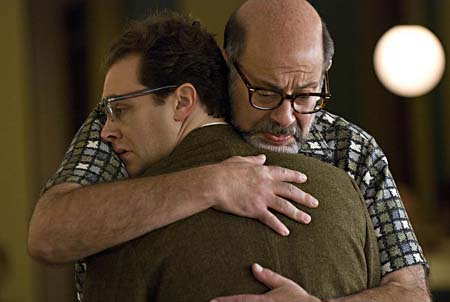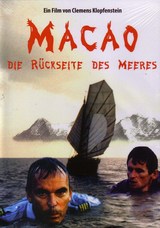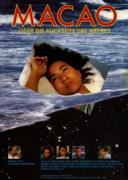From the Chicago Reader (June 29, 1990). A more recent look at this sequel shows that it dates badly, even (and perhaps especially) with all its Trump references. Its gibes all remain on the same level, even when they’re funny, so that it never becomes disturbing (as its predecessor does) or provocative. — J.R.
GREMLINS 2: THE NEW BATCH
***
Directed by Joe Dante
Written by Charlie Haas
With Zach Galligan, Phoebe Cates, John Glover, Robert Prosky, Robert Picardo, Christopher Lee, Haviland Morris, Keye Luke, and Dick Miller.
A cautionary tale set in a Frank Capra universe, Joe Dante’s original Gremlins (1984) gives us a kindhearted, unsuccessful inventor named Peltzer (Hoyt Axton) who buys a furry little creature called Mogwai as a Christmas present for his teenage son Billy (Zach Galligan). He finds Mogwai in Chinatown, in a curio shop run by the sage Mr. Wing (Keye Luke), who doesn’t want to sell it, but Wing’s practical-minded grandson, who says they need the money, arranges the deal anyway. Peltzer is warned to follow three rules of animal maintenance: keep Mogwai out of the light, don’t get it wet, and, above all, never feed it after midnight. After Peltzer brings it home, he names the pet Gizmo, reflecting his own taste in crackpot inventions. Read more
Since I’m no longer a regular reviewer and never have been much of a fan of the Coen brothers’ special brand of scornful, smart-ass caricature, I’ve been slow in catching up with A Serious Man, which turns out to be one of their most interesting (not to mention most serious, or at least most “serious”) movies. Even though they’ll never come nearly as close to Franz Kafka as Kubrick does in the costume-shop sequences of Eyes Wide Shut, there’s something about their taste for surrealist nightmare that flourishes here when it’s tied to a sense of Jewish misery and doom; and even though their sense of period here is as post-modernist-faulty as it’s ever been, and some of their weirder forays are plainly misfires (e.g., the precredits sequence), their personal take on what it meant to be Jewish in Minneapolis in the 60s still carries a certain charge.

As for their penchant for stylistic pastiche, what’s most striking to me about the behavioral freakishness and geekiness on display here is the degree to which they seem to derive in this case from a non-Jewish model — specifically, David Lynch’s very WASPy Eraserhead. (If memory serves, the only other time that the Coens went in for Jewish stereotypes was in Barton Fink, and then their principal stylistic guides, Polanski and Kubrick, were both Jewish and specifically Eastern European in their gallows humor.) Read more
From the July 14, 1989 Chicago Reader. –J.R.


MACAO, OR BEYOND THE SEA
*** (A must-see)
Directed by Clemens Klopfenstein
Written by Klopfenstein, Wolfram Groddeck, and Felix Tissi
With Max Ruedlinger, Christine Lauterburg, Hans-Dieter Jendreyko, Shirley Wong, and Che Tin Hong.

1. Some part of me feels an enormous gratitude for movies that I don’t fully understand. The compulsive legibility of commercial movies — designed to be synopsized in three or four sentences, promoted in one or two catchphrases, represented in a short trailer, consumed in a single gulp — has a tendency over the long haul to give clarity a bad name; Hollywood’s form of lucidity usually rules out feelings, moods, and ideas that can’t be encapsulated so simply. People are fond of comparing movies to dreams, but when was the last time you had a dream that could be synopsized as effortlessly as a Hollywood movie?

Part of the allure of dreams is their mystery — not the kind of mystery that a Marlowe or a Freud could solve, which reduces the unknown to the status of a riddle, but the larger kind of mystery, whose uncanniness is a matter of aura and atmosphere, a cosmic question mark that can’t be resolved by plot contrivances or symbolic substitutions. Read more





